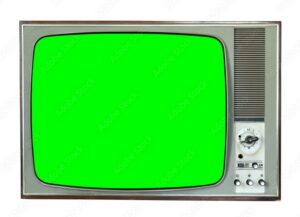Jerry Mander’s 1978 book, Four Arguments for the Elimination of Television is a counter-culture classic that analyzes the negative effects of television and advises against its use. Mander spent many years handling TV ads for huge corporations, became disillusioned with the “establishment,” and turned to helping promote non-profits and those he considered more worthy. But he ultimately felt their voices couldn’t be effectively communicated through the medium. 
Mass media is limited in many ways, as anyone can see from how astrology has been conveyed to a wider audience for more than 100 years.
Mander believed that human-created environments had already replaced real experience, and that television in particular narrowed perceptions (reminding me of Plato’s allegory of the cave). TV limits the use of our senses, as well as instinct, intuition, feeling and thought, and replaces them with a hypnotic, addictive experience. People and the environment are “dimmed out,” and we’re separated from others, the community and ourselves. Knowledge that’s not based on direct experience becomes the norm, and aided by TV, is replaced by the influence of science, technology and industrial proof.
On the other hand, television is best at being an “advertising delivery system” since the confining experience of TV can easily implant simple, clear ideas. Programming choices are in the hands of the techno-scientific and corporate elite, whose power is enhanced by their technology, resulting in the “loss of virtually everything that qualifies as meaningful.”
Those interested in history and cycles would tend to agree with some of his arguments. The needs of the market are contrary to human needs since “unlimited economic growth is a planetary impossibility. It could only have been conceived by minds out of touch with natural limits. It is dependent on a suicidal over use of resources and an impossible rate of commodity consumption.”
Artificial light obscures natural rhythms. Like food, living things need natural light for nourishment and growth. We’ve learned much more about how ultraviolet light is essential for synthesis of Vitamin D, and how blue light from screens can interfere with our circadian rhythms, but Mander wrote about these topics over 45 years ago. He believed that new technology should be considered “guilty until proven innocent.” Television was rapidly adopted, with little review or testing, and not much study of it was ever done. Over a 7-year period, the author found only 20 articles that critically looked at the effects of television, some of which included epilepsy, eye damage, heart rate changes and exposure to X-rays (electromagnetic radiation).
Television is only able to present us with “drastically reduced versions” and distortions of nature, the arts, religion and non-western or non-materialist cultures, since they demand the interplay of the mind and senses to understand fully. Instead, TV causes us to lose a sense of grounding in time and place.
Four Arguments for the Elimination of Television doesn’t touch on astrology, but while astrology proliferates on mass media today, much continues to be superficial. Like other uncommon subjects in the western world, one needs time to study, experience and understand astrology.
These days, television is very different, and we’re dominated by the Internet. But our social media platforms have become updated “advertising delivery systems.” Jerry Mander died in April of 2023 at the age of 85, and would have seen the popularity and power of the Internet as the next stage for advertisers. He was very prescient, if not prophetic. But in 1977, even he admitted he didn’t know how to eliminate TV.
Four Arguments for the Elimination of Television is available second-hand on Amazon and elsewhere.
